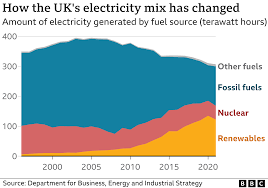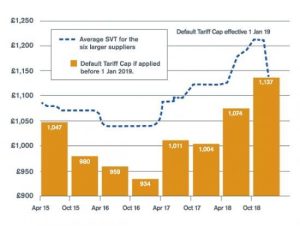According to research by insurance broker Gallagher, almost half of UK businesses have already been affected by climate change. Extreme weather events such as flooding and heatwaves often disrupt operations; other negative outcomes include increased operating costs, supply chain issues and physical damage to premises.
An important source of UK greenhouse gas (GHG) emissions comes from business operations, particularly agriculture, oil and gas production, mining, energy utilities, water utilities, manufacturing industries and transport.

The United Kingdom presents an immense opportunity to reduce GHG emissions from business operations by decarbonizing them, by increasing renewable energy penetration into supply chains and employing energy-saving technologies and processes that provide significant cost savings and decreased environmental impacts.
UK consumers are becoming increasingly drawn to brands that take action against climate change. From food and clothing purchases, to household cleaners, consumers want the reassurance that the companies they patronise are taking steps to safeguard our planet and increase customer loyalty through providing more sustainable experiences. This presents companies in hospitality, leisure, and transport industries a wonderful opportunity to build customer loyalty by creating more sustainable experiences for their guests and passengers alike.
COVID-19 pandemic has also brought attention to climate change effects and businesses’ obligations to address them. A recent poll conducted by sustainability charity WRAP showed that 88% of UK adults believed businesses must do more to tackle climate change and support government targets for carbon reduction.
Businesses face the expense and risk of implementing climate change measures, which could include new equipment or buildings, altering operational

procedures or taking out business interruption insurance against floods and other climate-related risks. Businesses should take a comprehensive approach when assessing these costs as it will ensure all financial advantages as well as any possible downsides are considered when making their decision.
Over half of UK businesses agree that the government should do more to assist businesses in mitigating the effects of climate change, including offering tax breaks for investments in low-carbon technology and providing clear guidelines on how to comply with government policies. This would give more certainty for business and encourage rapid decarbonisation efforts.
Studies on the cumulative impacts of UK energy and climate change policies on businesses’ energy prices and bills vary significantly, due to differences in
methodologies, assumptions and policy coverage. Some studies focused solely on individual policies instead of the cumulative impacts of multiple policies; and their effectiveness often depended on factors like sector type, size and type of company – making comparing existing studies difficult; nonetheless it appears likely that their combination will result in an increase in energy bills for businesses.